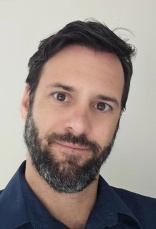Home › blog › 2012 › December › 13th › how can we shape our future
How can we shape our future?
13th of December 2012 Article by Markus AschMarkus Asch, vice chairman of the management board at cleaning equipment manufacturer Kärcher and president of EUnited Cleaning, writes his latest blog for the ECJ website. He believes that although the industry is in difficult times, there are still opportunities for growth.
Although the cleaning industry is in a very difficult situation with no growth at the moment, there are still tremendous opportunities for growth. This applies just as much in emerging markets where a great many cleaning tasks are still carried out manually, as in industrial countries in which the automation and heightened efficiency of such tasks are increasingly important considerations.
It is vital for the success of our industry that we identify trends early, and respond to the ensuing changed demands of our customers. We have been particularly successful in relation to the sustainability megatrend - for a long time now, we have been putting great emphasis on environmentally friendly and resource-efficient products and services, and we continuously work with initiatives such as Blue Competence to increase public awareness of this topic.
If we want to be successful in the future, we must certainly take care not to disregard other megatrends. Global developments such as demographic change are going to have a marked influence on the requirements of our customers in the coming decades; similarly social change, for instance increasing individualisation and urbanisation. If our customers' needs change, then we as cleaning industry must address those needs.
We are already in a position where we can offer some possible solutions: we can deal with the trend towards individualisation, with its requirement for a personalised design of one's own living environment, with cleaning equipment that can be completely individually configured to meet the needs of the user.
But in relation to other trends, such as urbanisation, the cleaning industry still lacks concrete solutions. Since 2007, more than half the population of the world lives in cities. Research from the McKinsey Global Institute estimates that this figure might rise to as much as 70 per cent by the year 2050. We have to have a total rethink of this whole subject.
Energy-saving concepts, for instance charging batteries by pushing devices along, become just as important as networking of information: so buildings, machines and users are in constant communication about what, when, how and where is to be cleaned. I am sure that we will in the future have to completely redefine the term 'facility management'.
We will only achieve a positive development if we take action, and if we detect early developments in technology and society - by intensive monitoring, for example, and by a close network between customers, service providers and machine manufacturers.
This will give us the chance to create concrete solutions in response to a trend, and to develop these in collaboration with our customers. I am convinced that it is only if we actively shape our own future that we will continue to succeed.










